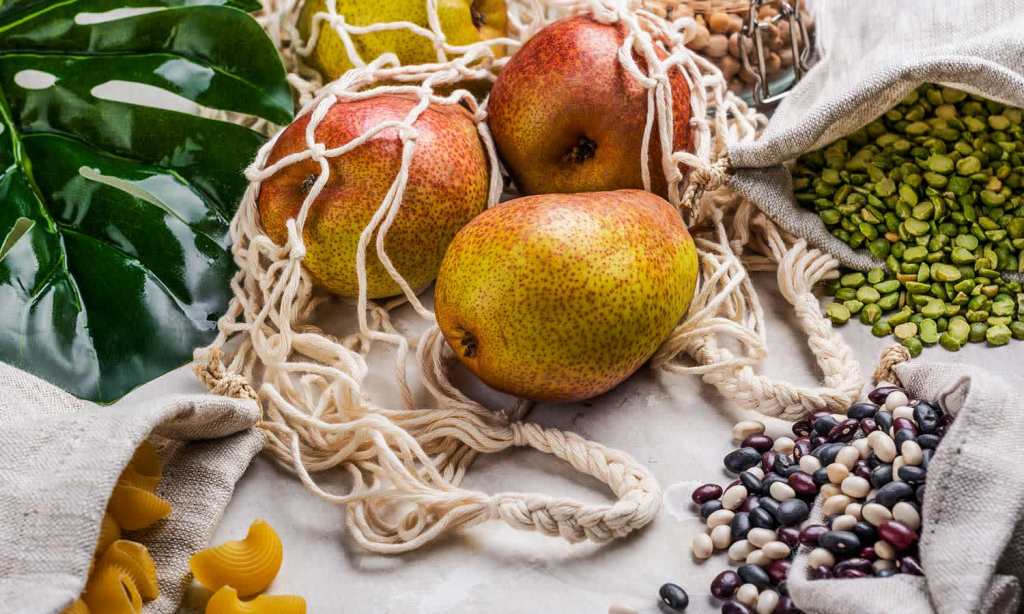Once upon a time it was the living room, but it’s the kitchen that’s now considered the heart of the home. It’s the place where everyone comes together, where meaningful conversations are had, and where we show our love for our friends and family through the kind act of cooking and sharing a meal.
We spend a lot of time in the kitchen, and we also spend a lot of energy here too. Appliances like the dishwasher, range hood, fridge and stove use big resources, and that’s before we take into account the water usage, lighting, food waste and chemical run-off from cleaning products. It’s a lot, but it doesn’t have to be.
A big move would be investing in energy-efficient appliances, but the small moves go a long way to creating a greener home. With a few small swaps, we can all work to reduce our environmental footprint from the hearts of our homes — one day at a time:
Monday: Start a compost bin
Whether you live in an apartment or house, anyone can start a compost bin. Benchtop composters can be found at all kitchen stores but if you’re keen to get cracking right now, you can start with a medium-sized Tupperware container or bowl. As you’re cooking, pop all food scraps into the container instead of the general waste bin.
You can add vegetable peelings, coffee grounds, eggshells; basically anything but dairy and meat scraps. At the end of the week, you can donate your scraps to a local community garden or find a compost bin owner on ShareWaste. Find out more in our composting guide here.
Tuesday: Switch to dairy-free milk
A recent study from the University of Oxford found a glass of dairy milk produces almost three times more greenhouse gas emissions than any plant-based milk, and consumes nine times more land than any of the other milk alternatives. It’s not to say we need to cut out dairy entirely, but it certainly couldn’t hurt to be a little more mindful of our milk purchases.
This week, might we suggest trying something a little different? Plant-based milks like those from Vitasoy use vego-friendly ingredients like Australian-grown almonds, soy, rice, oats and coconut. They’re nutritious, creamy, and make for a great coffee companion.
Wednesday: Ditch single-use plastics
Cling wrap, ziplock bags, freezer bags; they’re all made from soft plastics and while they’re all recyclable through soft plastic recycling schemes, they’re still designed for single-use.
But good news; a bunch of new eco-friendly companies are popping up with environmentally friendly alternatives. These days, you can get compostable cling film, beeswax wraps and reusable ziplock bags. Grab a bunch of these and you’ll never need plastic again.
Thursday: Go (coco)nuts
Kitchen cleaning utensils are, more often than not, made of plastic or synthetic materials. While these can be effective, they’re no better than the emerging alternatives that include coconut scourers and bamboo brushes. Unlike these eco-friendly, compostable and stylish alternatives don’t break off into small microplastics that disappear down the sink. The best part? They’re long-lasting and affordable.
Friday: Swap out those bulbs
Lighting in homes consumes 8-15% of the average Australian household electricity budget, and if you’re spending a fair bit of time in the kitchen, then you could be clocking up some serious coin. If your kitchen isn’t already fitted out with LED light bulbs, then it’s time to make the switch. In addition to being far more energy-efficient, LED bulbs also last a lot longer, which means fewer blown bulbs.
Saturday: Buy in bulk — leave the bags at home
You can cut our unnecessary packaging by buying dry goods at bulk-shopping stores. Stores like The Source Bulk Foods and Naked Foods encourage you to bring your own containers to cut down on waste. Not only that, but they have refillable solutions like dishwashing liquid and soaps, which are organic, soft on skin, and can save you a lot of money over time.
Sunday: Run the dishwasher on eco
Dishwashers actually save more water than hand-washing, so if you haven’t yet made the switch to a dishwasher (and are ready to hang up your rubber gloves for good), then it might be time to consider an upgrade. Nowadays, dishwashers come with specialised eco settings that use less water and slightly lower temperatures, which saves a bunch of energy in the long run. Bonus points are awarded for eco-friendly and non-toxic dishwasher tablets.
Read more stories from The Latch and subscribe to our email newsletter.

